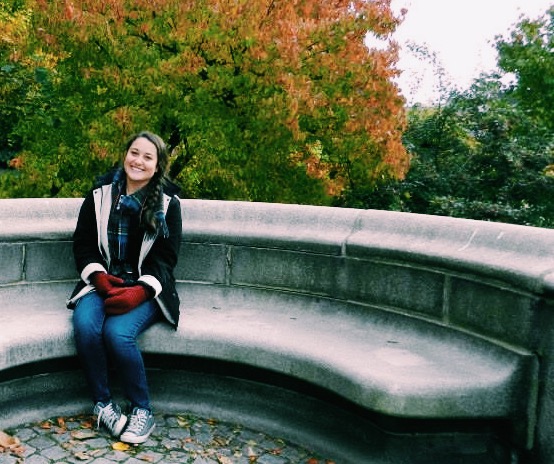Kristen Andersen ’15 Wins KI-DIS Fellowship

Kristen Andersen '15 is this year's winner of the KI-DIS Fellowship, which will fund her yearlong master’s program in global health at Karolinska Institutet in Sweden.
Details
The award will fund tuition fees for her yearlong master’s in global health program at Karolinska Institutet in Sweden, starting this fall.
Kristen Andersen’15 had a transformative experience studying abroad during the fall of her junior year. She attended DIS Copenhagen’s neuroscience program, where the history of art major also got to explore Denmark’s art history and architecture and take a weeklong academic tour visiting working neuroscience researchers in Switzerland and Germany. The experience was so foundational for her, in fact, that following her Haverford graduation, she returned to Copenhagen to work as a program assistant for DIS to help facilitate the kind of experiential cross-cultural educational opportunities from which she’d benefitted.
Andersen’s study abroad experience continues to influence her life’s path, even six years later. This fall, she will begin a yearlong master’s program in global health at Karolinska Institutet in Sweden with support from a merit-based scholarship co-funded by DIS and Karolinska for DIS alumni.
“I have always been fascinated by public health and the larger social and cultural dynamics that impact a person’s health status,” said Andersen. “This fellowship seemed like a great opportunity for me to combine my cross-disciplinary interests and to return to Scandinavia.”
Andersen’s KI-DIS Fellowship will fund her tuition in full for the program. Karolinska Institutet is Sweden’s single largest center of medical academic research and offers the country’s widest range of medical classes and programs.
Since returning from Denmark in 2017, Andersen has been pursuing clinical and research experience. She completed a pre-health post-baccalaureate program at the University of Pennsylvania in 2018, and has since been working as a clinical research assistant in Children’s Hospital of Philadelphia’s neurology department.
She struggled, she said, to balance her interests in the humanities and medicine during her undergrad education. But her Swedish master’s program is a welcome blend of natural and social sciences.
“Global health is a very interdisciplinary field and integrates perspectives from public health, medicine, epidemiology, health economics, behavioral science, environmental science, and anthropology, among others,” she said. “The first half of the program focuses on coursework addressing specific areas of global health—communicable and non-communicable disease, maternal and child health—[and] the final part is to complete research for a thesis project.”
Andersen is eager to move to Solna, home of Karolinska Institutet, and is excited that the university recently announced that classes will resume in September. Following her upcoming year abroad, she hopes to translate her educational experience into working with vulnerable communities back in the United States to advocate for innovative reforms to complex healthcare problems.
“I think the biggest take-away I got from Haverford was the importance of community,” she said, “and centering the values of trust, concern, and respect in everyday life.”



